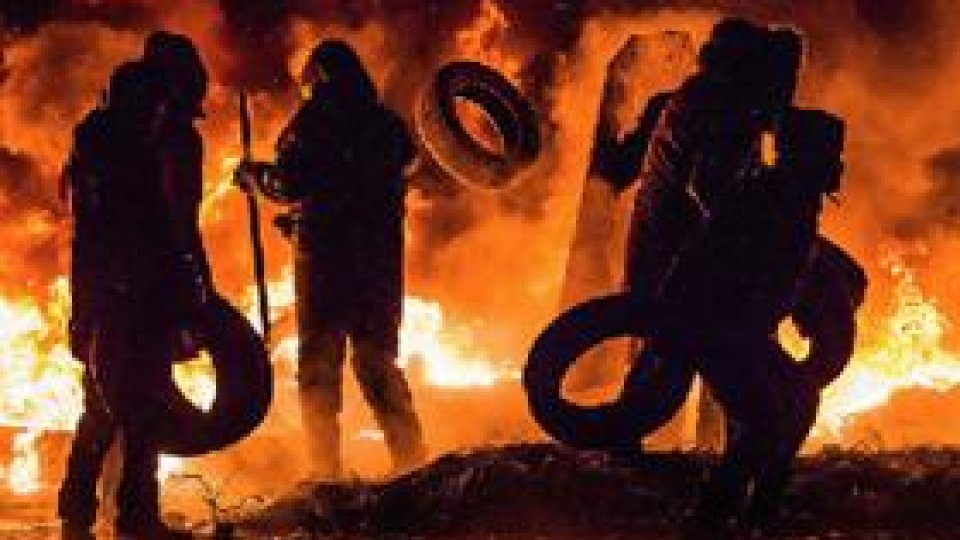Riots in Ukraine
On Tuesday night, Kiev turned into a battlefield, following clashes between protesters and the police.

Articol de Radio România Internaţional, 20 Februarie 2014, 12:23
After weeks of apparent calm, a fresh wave of violence is gripping Ukraine.
The clashes in the capital city Kiev, between the radical pro-European protesters and the riot police of President Yanukovych’s pro-Russian government, have already made victims on both sides.
According to observers, Kiev has not seen unrest of such an extent since Ukraine proclaimed its independence from the former Soviet Union 23 years ago.
Quite predictably, the first regions to plunge into chaos were those in the west of the country, dominated by nationalists who oppose the pro-Russian regime, and who have once again seized official buildings.
The east and the south of the country are more quiet, but the local leaders call on the president to take firm measures to end the instability.
The rift between Ukraine’s east and west, between its pro-European and pro-Russian citizens, is growing deeper by the hour.
And while people are dying in the streets, politicians are unable to reach a compromise, and Western capitals, in shock, can do nothing more than call for moderation and reason.
The US has condemned the violence of both sides, but emphasized that it is the government that has responsibility for restoring peace.
The US vice-president Joe Biden urged president Yanukovych to withdraw the police forces and to exercise maximum restraint.
The EU foreign policy chief Catherine Ashton voiced grave concern at the surge of violence and reiterated Brussels’ willingness to help.
In Romania, whose border with Ukraine is several hundred kilometers long, President Traian Basescu has called for an end to violence.
During the anti-communist Revolution in Romania in 1989, he said, “Romania saw violent clashes, and more than a thousand people lost their lives in the fight for freedom and democracy.
We learned then that violence is not a solution, and that options must be searched through democratic dialogue.”














